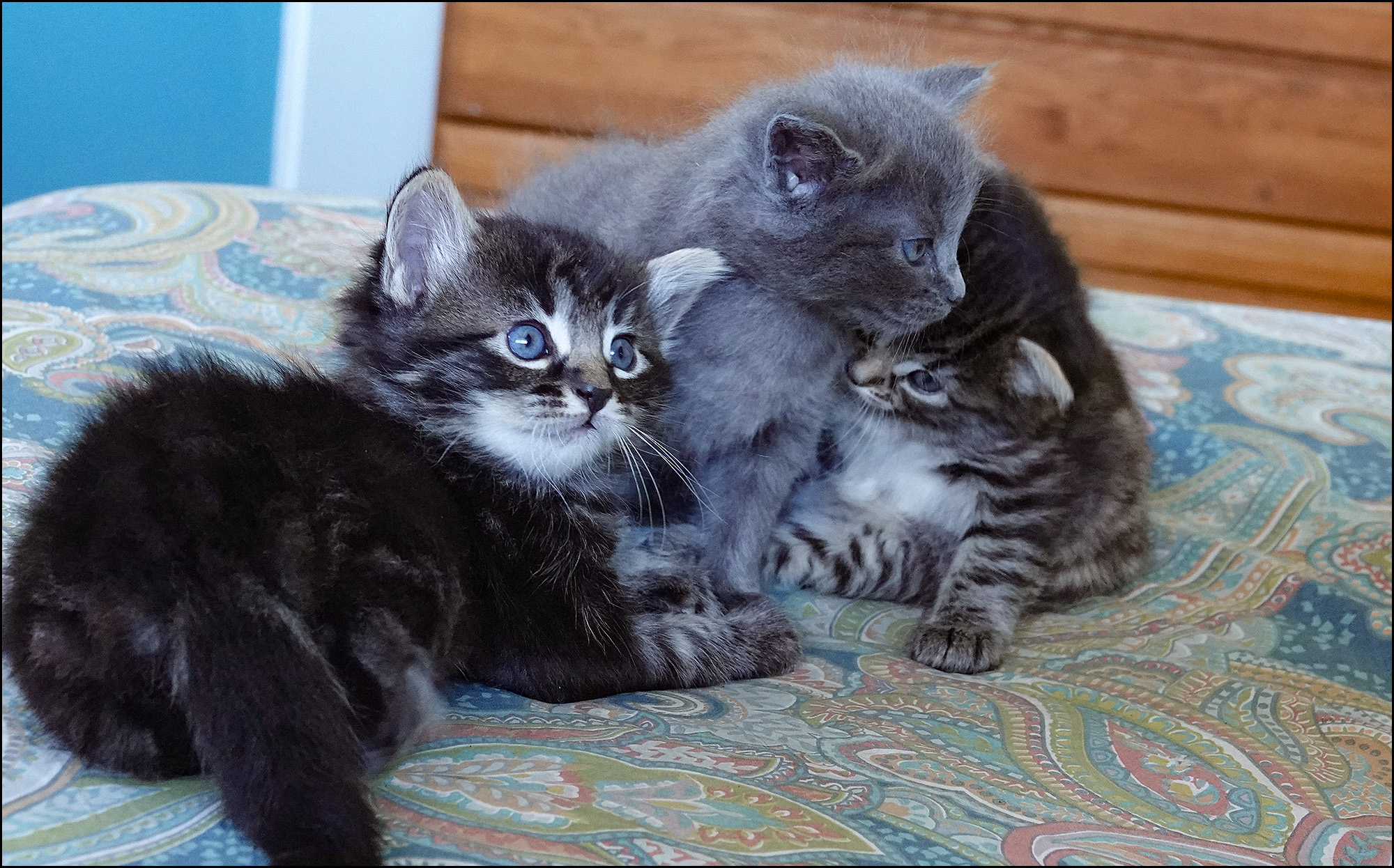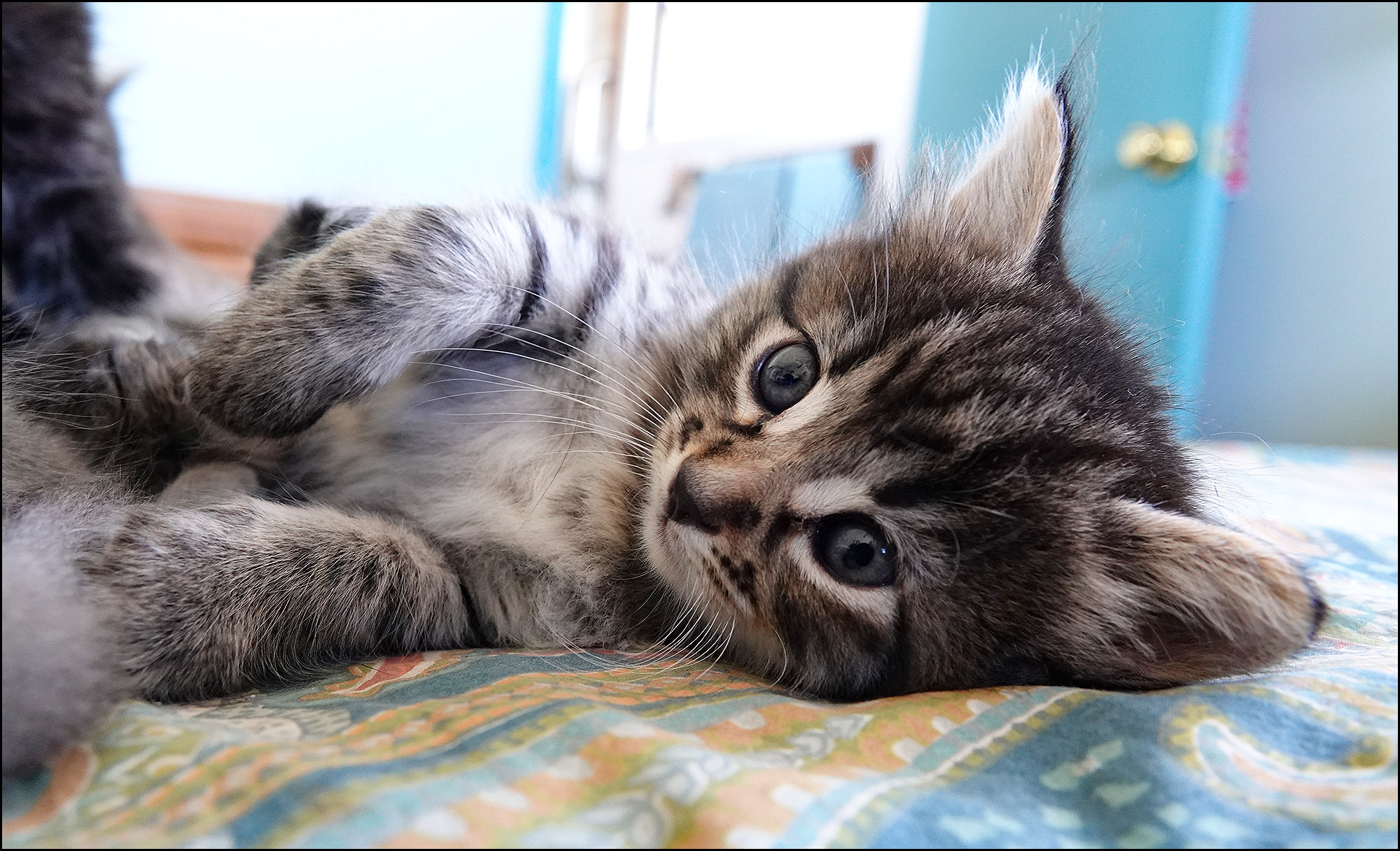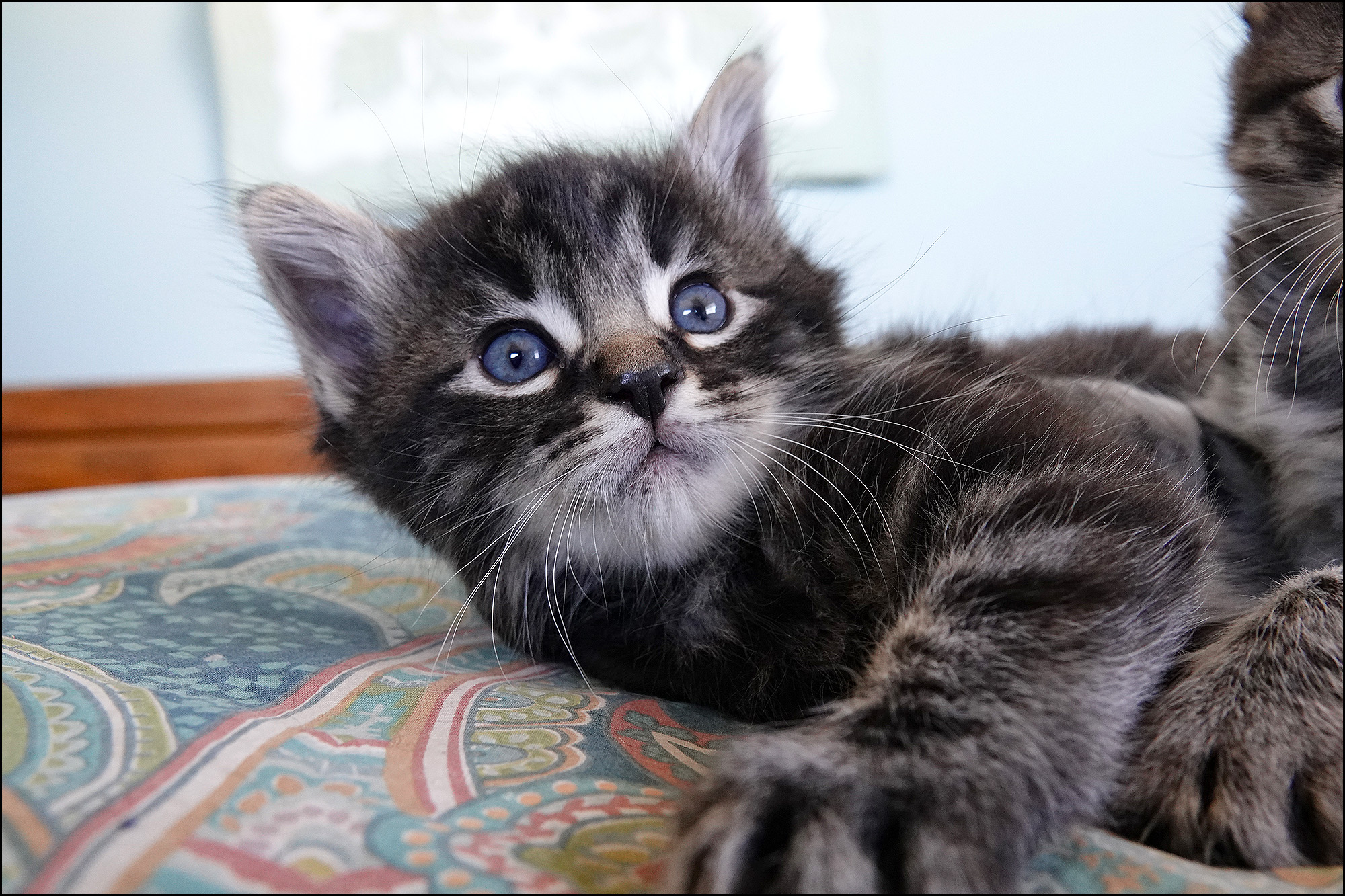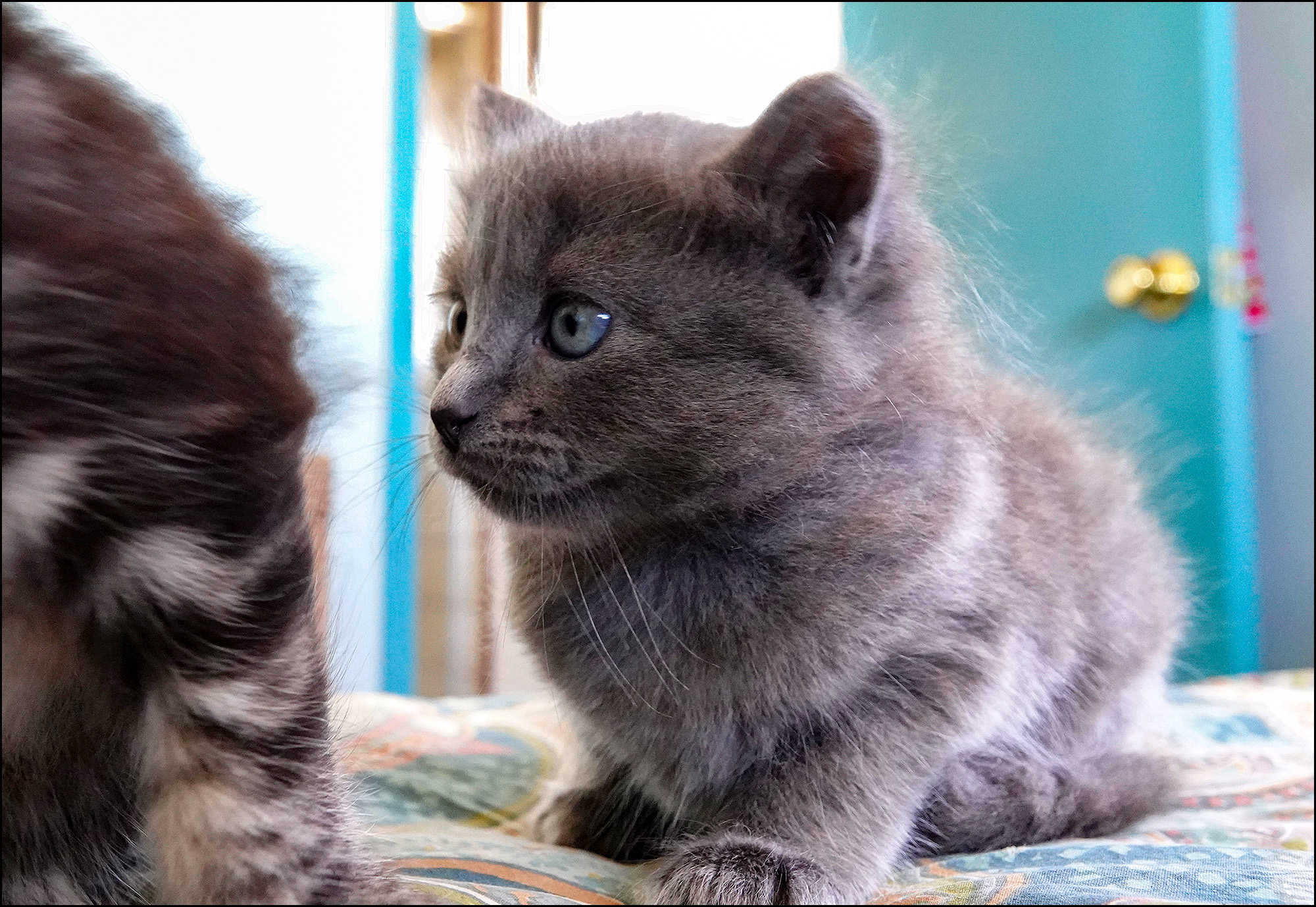My mother’s kittens are now five weeks old, so I figure it’s time to check in again. It turns out that they have escaped their box and are now energetically exploring the entire bedroom—but not the rest of the house. Not yet, anyway. I’m not sure what’s up with that, but I’m sure that soon they’ll be scampering everywhere that’s not locked up tight.
The top picture is their official five-week group portrait. They are engaged in their favorite activity: gathering up in a heap and squirming around. Below that we have individual shots of Stripey, Blackie, and Gray. They are adorable, no? Let me know if you’re interested in taking one home with you.
UPDATE: This morning the kittens broke the invisible barrier of the bedroom doorway and began exploring the rest of the house. Mayhem is expected.


















